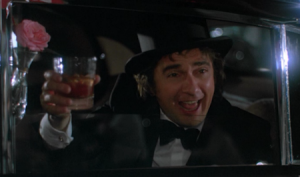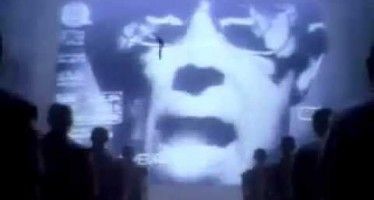Powerball grabs just $1 for each kid

 Back when the California Lottery was introduced in 1985, it was advertised as a way to bring a lot more funding to schools, almost effortlessly. No tax increases or budget manipulations were needed.
Back when the California Lottery was introduced in 1985, it was advertised as a way to bring a lot more funding to schools, almost effortlessly. No tax increases or budget manipulations were needed.
In that, it’s only been partly successful. The Orange County Register reported:
About one dollar.
That’s the share per student that Orange County’s public schools will receive from last week’s ticket sales for the current $317 million Powerball jackpot.
While educators welcome every extra cent, the jackpot was hardly the windfall needed to pay for new computers, lab equipment or after-school programs. Still, the money adds up.
On the positive side, for the Lottery for the whole year, $209 went to each student.
And for California as a whole, in 2014, the lottery provided about $1.35 billion for education, “about 2 percent of the $64 billion California spent on education.”
Who will tell the kids?
Another factor is whether this is such a great example for students. If some students took up a poker game at the back of the classroom, betting their lunch money, any school would clamp down posthaste — even if some of the money was dedicated to buy new erasers for the blackboards.
Or what about if schools held a “Smoke ’em if you got ’em” festivals, in which parents and other adults were encouraged to buy cigarettes, cigars and pipes from the school, at a markup to help the kids, and smoke them right there?
Gambling, even for the lottery, can be habit-forming, and can cause people severe financial problems, especially for the poor. The Daily Mail reported:
One reason for [addictive gambling], put forward by Giorgio Coricelli, an associate professor of economics and psychology at University of Southern California, is that confusion and uncertainty activates a part of the brain that makes us desire a solution.
When someone doesn’t know what to do in a certain situation the brain will search frantically for an answer and this can lead to people thinking that something is factual or realistic, even when it’s false or superstition.
This jump to fantasy makes us an ‘easy target for advertising’ claims Piore.
He claims that adverts about winning the lottery makes people fantasise about how they would spend the money.
This activates the same parts of the brain that would become active if we actually won.
Daniel Levine, professor of psychology at the University of Texas at Arlington told Piore that “picturing ourselves in a limo activates visual areas of the brain, while imagining the clink of champagne glasses lights up the auditory cortex. These areas have links to the brain regions involved in emotion, decision-making, and motivation.
This only lasts so long and positive reinforcement is needed to sustain this feeling.
Lotteries are designed to give people ‘near misses’ by letting people win from three numbers, for example, and this makes people want to try again.
Piore claims that most players don’t realise this is an illusion and the odds of winning actually get worse with each successive match.
The lottery appeals most to poor people, too, despite having less disposable income to gamble.
Impoverishing
 And California, because of its high cost of living, including the country’s highest taxes, now has the nation’s highest poverty rate, about a quarter of our people.
And California, because of its high cost of living, including the country’s highest taxes, now has the nation’s highest poverty rate, about a quarter of our people.
So the state government first impoverishes people, through taxation and limiting housing construction, then it promises them the false hope of becoming another “Arthur,” as in the movie of that name with Dudley Moore, riding around in a Rolls, drinking Dom Perignon — if they splurge on the very Lottery that impoverishes them.
All these questions were hashed out 30 years ago when the Lottery became law. So people seem happy to live with the contradictions — because it’s “for the children.”
Related Articles
Sacramento growth plan: more low-income housing
March 19, 2013 By Katy Grimes When the going gets tough, the tough go shopping. But not in downtown Sacramento.
Happy 30th Birthday, Macintosh
The personal computer revolution took off like an ICBM with the introduction of Apple’s Macintosh 30 years ago today. Two
Nutty CA Court Attacks Hybrid Cars
John Seiler: I’d rather walk that drive a hybrid car. After bourbon, the internal combustion engine is mankind’s greatest invention.



